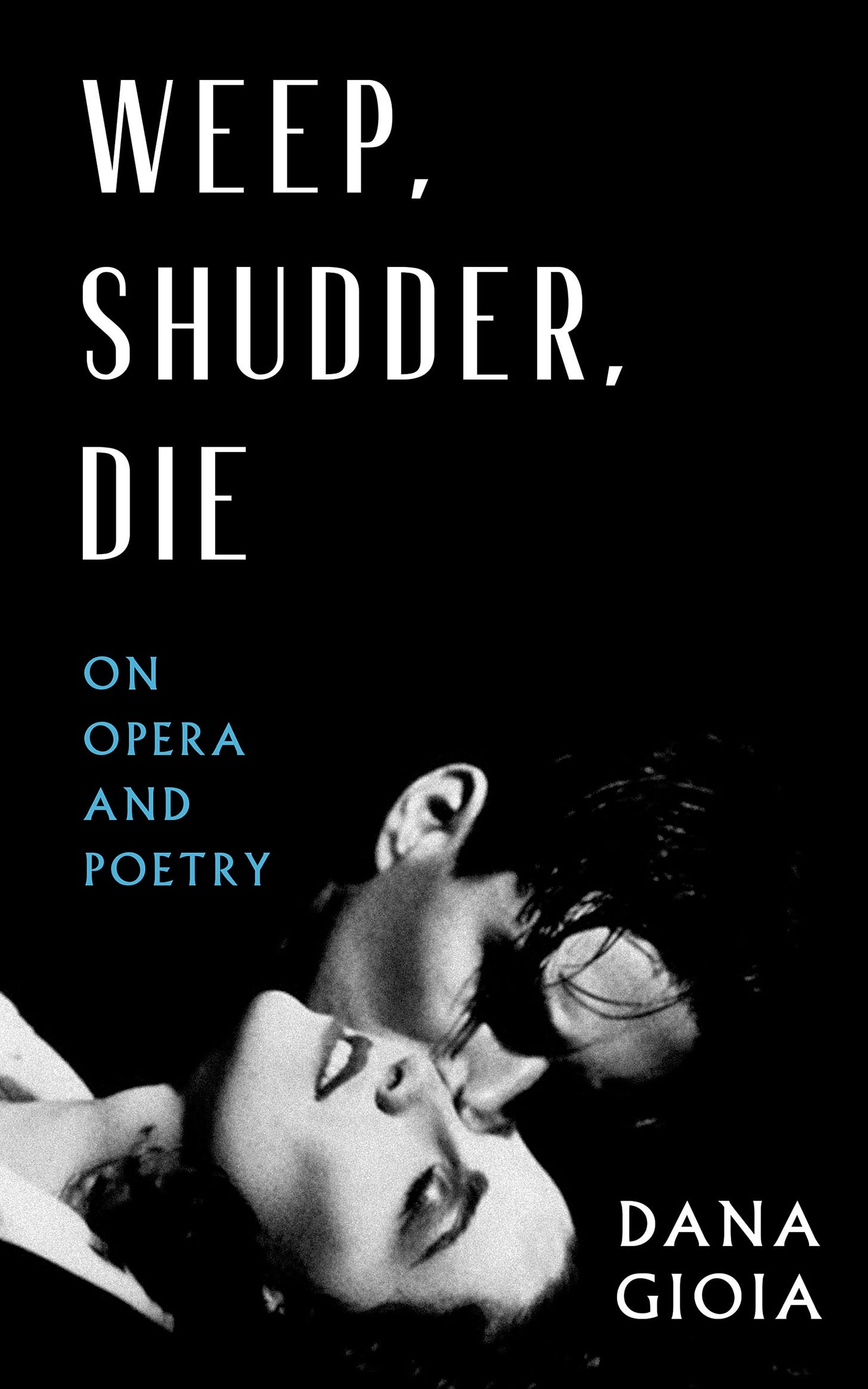Librettist: be daunted, but do not give up.
A Review of Weep, Shutter, Die by Dana Gioia
Dana Gioia’s latest book, Weep, Shutter, Die, published in December 2024, claims to be about opera and poetry. Now, what that means is anyone's guess.
Excerpts were released in segmented chapters of the memoir, with Gioia sharing about his love affair with opera. His writing is impeccable, with the same clarity, intelligence, and readability we saw while Studying with Miss Bishop. It is a delight to read him. But this book on opera is more than a memoir, with only a few stray chapters telling his personal story with opera. Weep, Shutter, Die is both a history book that considers and surveys the history of opera and the men and one woman who wrote its libretti.
I had to learn this once. A libretto is the text of an opera. Librettist of the writer of the test. Libretti is the plural. The librettist writes first, sometimes with his own concept, sometimes commissioned by a director of an opera company or some such thing. The composer follows, setting the words to music. In modern opera, especially in America, the roll of librettist has seemed a mere accessory, a necessary evil for the composer to shine. We rarely say who wrote the test of the opera by Mozart, Puccini, or Brittan.
Gioia shows that the handful of most famous, most performed operas are composed by as few a number of librettists. He shows the great composers who had written their greatest hits with the same librettist and, once no longer working with that librettist , did not achieve that mega-hit status again. The librettist matters.
Gioia is well-versed in this well-researched, fairly straightforward history of opera. Under the pen of a lesser writer, the book would be dry - one reference after another- but with Gioia’s poetic instinct, he makes the writing sing. And why shouldn't he? Gioia is the author of three libretti, the first of which he shares its origin in the final chapter of Weep, Shutter, Die.
This book is more than a history book, just as I am more than a reader.
I walked away from a summer Retreat for Artists and Art Lovers held by the Benedict XVI Institute, reminding myself that “I am a writer.” More than my credentials as editor or reporter, I am a writer.
As a writer, I read Weep, Shutter, Die.
As a writer, I found in it a manual of sorts on how to write a libretto, what to do and what not to do, what makes a great libretto and what makes a passable libretto. The task is not for the faint of heart, but the completion is an act of artistic creation unlike any other.
I cannot read Dana Gioia neutrally. He is a poet, a writer, a Catholic, and he is a teacher. His books are on my shelves; his YouTube Channel is saved, and his podcast interviews are all marked as finished in my Spotify lists. Again and again, I learn from him.
Reading this work, as a writer and as a student, I felt the blunt challenge of the task I have dreamed about, but I also felt the hope and the inspiration great teachers impart to their ordinary students.
It can be done, but it should be done well.
Be daunted, but do not give up.
Be inspired, but be realistic.
It takes more than a great writer, a great poet or a great composer; it takes theatrics and psychological depth while still maintaining narrative simplicity. Gioia gives the ingredients, and he gives the example.
I know I will revisit this work. There is too much in Weep, Shutter, Die for it to be read only once.



